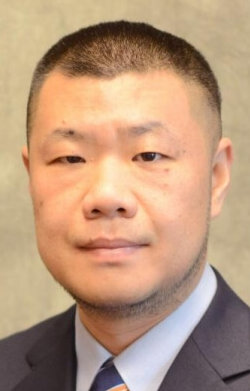Revolutionary Fall Prevention Study Combines Ancient Tai Chi with Modern AI
Researchers at The University of Texas Health Science Center at San Antonio (UT Health San Antonio) are pioneering a groundbreaking study that merges the ancient movement practice of tai chi with cutting-edge artificial intelligence (AI) to prevent dangerous falls in individuals with Alzheimer’s disease and related dementias.
Led by Wei Liu, PhD, associate professor in the Department of Physical Therapy at UT Health San Antonio’s School of Health Professions, the research aims to transform tai chi into a personalized, AI-guided therapy. Liu, who also serves as research director of the Human Performance and Rehabilitation Research Lab, is developing a mobile app powered by AI that will assess patient health data and “prescribe” customized tai chi routines to improve balance and reduce fall risk in individuals with early cognitive decline.

“When you’re doing tai chi, it’s a challenge to your dynamic balance. That means you’re using your brain, connecting your muscles, then making the whole thing work,” Liu explained. The hypothesis is that by learning to challenge their balance through tai chi, individuals with dementia can develop motor-learning skills that translate into daily activities like walking, potentially reducing their fall risk.
The Critical Need for Fall Prevention
Falls pose a serious and costly risk for people living with dementia, who are up to three times more likely to fall than those without the condition. In Texas alone, falls among older adults cost the healthcare system $2.4 billion annually, according to the Centers for Disease Control and Prevention.
Liu’s research focuses on tai chi not merely as a form of gentle exercise, but as a targeted intervention. His lab utilizes markerless motion tracking technology and biomechanical modeling to study how specific tai chi forms affect dynamic balance, gait, and joint load – key factors in fall prevention.
Optimizing Tai Chi for Maximum Benefit
Studies have shown that even brief daily sessions of optimized tai chi can yield significant physiological responses. “We’re now investigating optimized tai chi strategies for interventions in a variety of patient populations,” Liu said. By curating a specific set of movements, the program aims to provide clinical outcomes comparable to longer routines, making it more accessible for individuals with dementia and other conditions.
The University of Texas Health Science Center at San Antonio (UT Health San Antonio) is one of the country’s leading health science and research universities. With missions of teaching, research, and patient care, its various schools have graduated over 45,000 alumni who are making a difference in their fields and improving lives throughout South Texas and globally.


